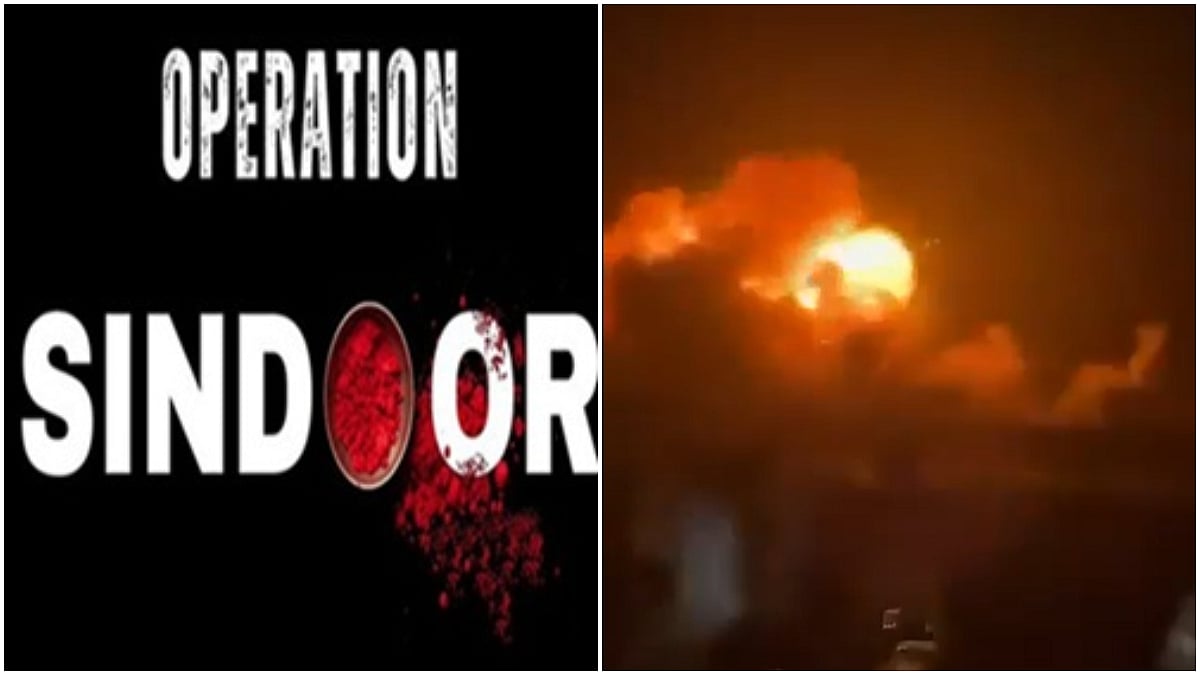The destruction of nine terrorist camps in Pakistan and Pakistan-occupied-Kashmir (PoK) by India on Wednesday has once again demonstrated Delhi’s firm commitment to fight terrorism on its soil and act against those who target Indians. The Indian action came in response to the April 22 terrorist attack in Pahalgam in Kashmir, in which 26 innocent tourists were brutally killed by operatives of the Pakistan-based Lashkar-e-Taiba (Let). The military action, codenamed Operation Sindoor, symbolising the sacred vermilion of a married Hindu woman, was a signal to those widows who saw their husbands being killed in front of their eyes and also to Pakistan that the Indian government will punish those responsible for their killing. The military action, however, avoided targeting civilians and Pakistan’s military installations, making it clear that India does not want to encourage a wider conflict.
In a pre-dawn, tri-service coordinated action called Operation Sindoor, the armed forces launched 24 missiles against precise terrorists’ locations in Pakistan and territories under its control to demolish the camps. Nearly 70 terrorists were reportedly killed in the missile attack. The entire operation lasted less than 25 minutes. Most of the dead were members of the terrorist organisations Lashkar-e-Taiba and Jaish-e-Mohamed, who have been responsible for targeting Indian assets and citizens over the years. The action against Pakistan came amid calls for restraint from key world leaders. India’s decision to go ahead with its objective, ignoring such calls, indicates that despite its respect for global opinion, its primary responsibility was the safety and security of its people.
India waited for nearly two weeks, informing world leaders about Pakistan’s complicity and its pursuance of cross-border terrorism as a foreign policy tool against India. It hoped Islamabad would punish the perpetrators and assure Delhi it would not encourage such acts in future by taking visible action in dismantling its terrorist infrastructures. Instead, Pakistan denied its involvement and attacked India for creating a war hysteria between the two countries while playing to the outside world’s apprehension that an India-Pakistan armed conflict can deteriorate to a nuclear conflagration. This left India with little choice but to take action against the terrorists and their backers in Pakistan. India also had credible intelligence that Pakistan was gathering more terrorists at the camps to carry out similar attacks in Kashmir and other parts of India. The action was, therefore, both pre-emptive and punishing to those involved in the Pahalgam attack.
The Indian foreign minister S. Jaishankar has briefed the leaders of the United States, the United Kingdom, the United Arab Emirates, Saudi Arabia and Russia. The Iranian foreign minister Seyed Abbas Aragachi, who arrived in Delhi on Wednesday, was briefed by the Indian foreign minister. Besides, Prime Minister Narendra Modi has also discussed the evolving situation with leaders of the five countries in the past few days.
The death of the 26 civilians was the largest number of civilian casualties since the November 26, 2008, attacks in Mumbai. The brutal killing of the innocent tourists in front of their family was clearly driven by the objectives of disrupting tourism, the mainstay of the local economy, and derailing the normalcy that was being restored in the Union Territory through development and growth.
Last year, over 23 million tourists from different parts of India visited Jammu and Kashmir, in addition to about 40,000 foreigners. The killing of the tourists was a signal to the rest of India that the area was not safe for visiting. Another objective was to tell the world that despite India’s claim, Jammu and Kashmir remained a disturbed area and local people were desperate to seek independence from Indian rule. The aim was to ensure the region remained a fertile ground for continued cross-border terrorism from Pakistan by keeping it backward and disturbed. The attack was also driven by an objective to provoke communal violence in Jammu and Kashmir and the rest of India. However, because of the government and the people, such designs were foiled.
A group called the Resistance Front (TRF) claimed responsibility for the attack. However, it was a front for the Let, a UN-proscribed Pakistani terrorist group. The Indian investigation teams had also found, through communication nodes of terrorists and other evidence after the Pahalgam attack, their link to Pakistan.
India must continue to exert pressure on Pakistan at the international stage through sustained campaigning. Pakistan has a long tradition of indulging in cross-border terrorism against India and has a reputation for being a safe haven for terrorists from around the world. It has wilfully misled the world leaders at international forums, like the Financial Action Task Force, about harbouring terrorists. India should also maintain economic pressure on Pakistan. Credit agency Moody says Pakistan’s IMF loan in the future could be affected if it engages in a long war. A long war is not desirable, but world opinion must be against Pakistan to force it to give up its policy of using terrorism as a tool against its neighbour. Otherwise, India could come up with a much stronger response against Pakistan in future.











